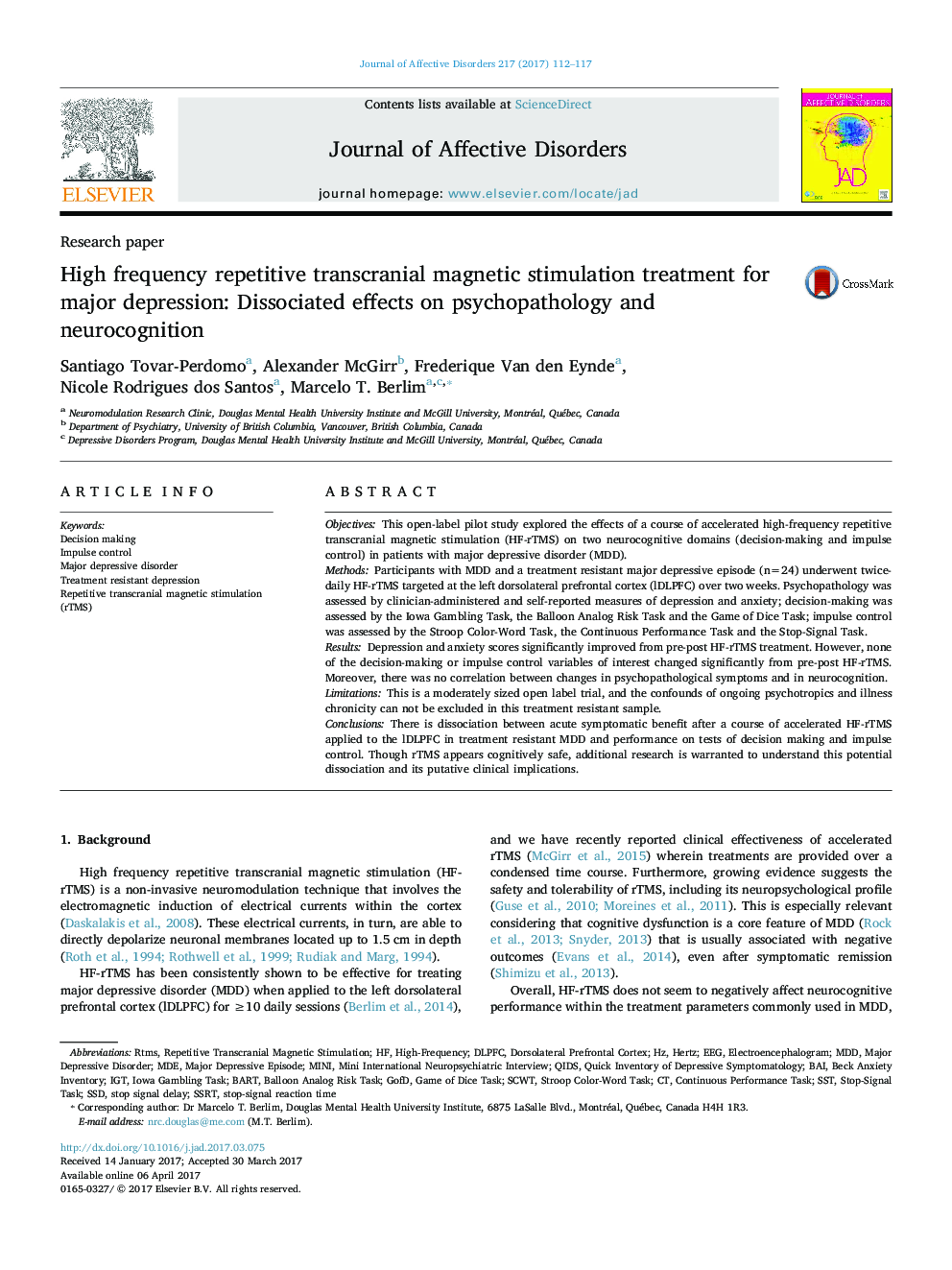| کد مقاله | کد نشریه | سال انتشار | مقاله انگلیسی | نسخه تمام متن |
|---|---|---|---|---|
| 5722189 | 1608108 | 2017 | 6 صفحه PDF | دانلود رایگان |
- Accelerated HF-rTMS to the lDLPFC resulted in clinical improvement in major depression.
- Accelerated HF-rTMS to the lDLPFC did not influence impulsivity and decision-making.
- Further research is needed to clarify the neurocognitive effects of rTMS in major depression
ObjectivesThis open-label pilot study explored the effects of a course of accelerated high-frequency repetitive transcranial magnetic stimulation (HF-rTMS) on two neurocognitive domains (decision-making and impulse control) in patients with major depressive disorder (MDD).MethodsParticipants with MDD and a treatment resistant major depressive episode (n=24) underwent twice-daily HF-rTMS targeted at the left dorsolateral prefrontal cortex (lDLPFC) over two weeks. Psychopathology was assessed by clinician-administered and self-reported measures of depression and anxiety; decision-making was assessed by the Iowa Gambling Task, the Balloon Analog Risk Task and the Game of Dice Task; impulse control was assessed by the Stroop Color-Word Task, the Continuous Performance Task and the Stop-Signal Task.ResultsDepression and anxiety scores significantly improved from pre-post HF-rTMS treatment. However, none of the decision-making or impulse control variables of interest changed significantly from pre-post HF-rTMS. Moreover, there was no correlation between changes in psychopathological symptoms and in neurocognition.LimitationsThis is a moderately sized open label trial, and the confounds of ongoing psychotropics and illness chronicity can not be excluded in this treatment resistant sample.ConclusionsThere is dissociation between acute symptomatic benefit after a course of accelerated HF-rTMS applied to the lDLPFC in treatment resistant MDD and performance on tests of decision making and impulse control. Though rTMS appears cognitively safe, additional research is warranted to understand this potential dissociation and its putative clinical implications.
Journal: Journal of Affective Disorders - Volume 217, 1 August 2017, Pages 112-117
